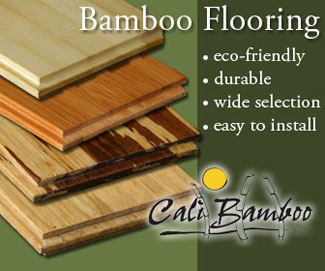Eco-Friendly Flooring: Sustainable Style for Your Space

Sustainable Style: Embracing Eco-Friendly Flooring
In the realm of interior design, eco-friendly flooring stands out as a sustainable choice that combines style with environmental consciousness. Let’s explore the world of eco-friendly flooring options, their benefits, and how they contribute to creating a healthier and more sustainable living space.
Understanding Eco-Friendly Flooring: A Green Choice
Eco-friendly flooring, often synonymous with green or sustainable flooring, refers to flooring materials that are produced, installed, and maintained with a focus on minimizing environmental impact. These flooring options prioritize the use of renewable resources, recycled materials, and low-emission production processes.
Bamboo Flooring: Harnessing the Power of Renewability
Bamboo flooring is a popular choice for those seeking eco-friendly options. Bamboo is a rapidly renewable resource that matures within a few years, making it an environmentally responsible alternative to traditional hardwoods. Bamboo flooring not only offers a sleek and modern aesthetic but also contributes to the conservation of forests.
Cork Flooring: A Resilient and Renewable Option
Cork flooring is another sustainable choice known for its resilience and renewability. Harvested from the bark of cork oak trees, this flooring option allows trees to continue growing after the harvest. Cork’s natural properties provide insulation, sound absorption, and a comfortable underfoot feel, making it a versatile and eco-friendly flooring solution.
Recycled and Reclaimed Wood: Giving New Life to Old Materials
Choosing recycled or reclaimed wood flooring is a way to breathe new life into old materials. This sustainable option reduces the demand for virgin timber, minimizing deforestation. Whether it’s reclaimed barn wood or salvaged gymnasium flooring, each piece adds character and history to your space while contributing to environmental conservation.
Linoleum Flooring: Time-Tested and Renewable
Linoleum, often confused with vinyl, is a time-tested and renewable flooring material. Made from natural ingredients such as linseed oil, cork flour, and wood powder, linoleum is biodegradable and recyclable. This durable flooring option comes in a variety of colors and patterns, providing both sustainability and style.
Recycled Carpet Tiles: Sustainable Softness underfoot
For those desiring soft flooring, recycled carpet tiles offer a sustainable solution. These tiles are made from recycled materials, such as post-consumer plastic bottles or discarded carpet fibers. They provide the comfort of carpet while minimizing the environmental impact associated with traditional carpet production.
Concrete Flooring: Industrial Chic with Sustainability
Concrete flooring, once considered industrial, has gained popularity for its versatility and sustainability. When properly sealed, concrete floors can be an eco-friendly and low-maintenance option. Additionally, incorporating recycled materials like glass or aggregates into the concrete mix enhances its green credentials.
Rubber Flooring: Versatile and Repurposed
Rubber flooring, often associated with gyms and commercial spaces, has made its way into residential interiors as a sustainable option. Made from recycled rubber tires, this durable flooring choice adds a touch of resilience and comfort. It also contributes to waste reduction by repurposing materials that would otherwise end up in landfills.
Natural Stone: Timeless Elegance with Minimal Impact
Natural stone, including options like slate or limestone, offers timeless elegance with minimal environmental impact. While extraction
